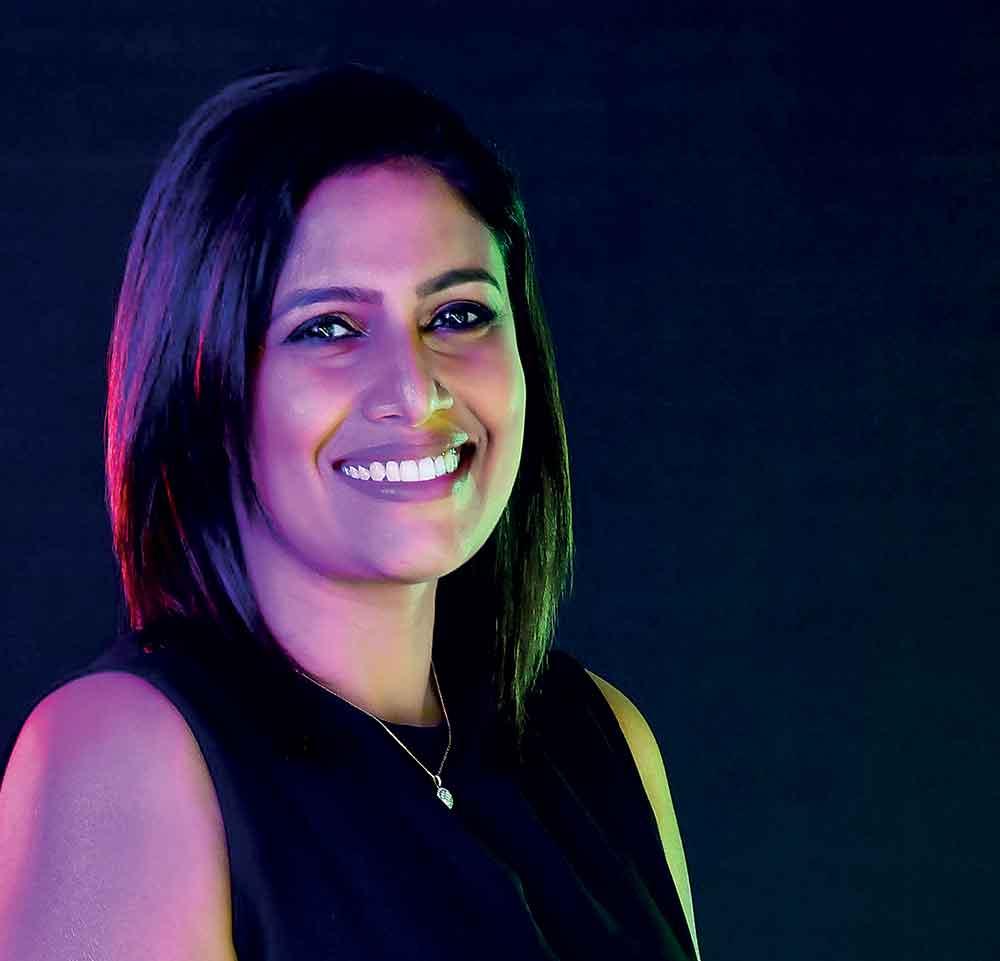
Nilushi Kumaradas represents a rare combination of analytical sharpness and human-centered leadership. Her story reminds us that growth comes from saying yes to the unknown, leading with purpose, and never losing sight of what matters most. As she continues to shape Sri Lanka’s QSR supply chain ecosystem, she remains a role model for women, and professionals everywhere, who dare to lead with courage and authenticity.
Driven by unwavering commitment, deep passion, and a wealth of skills, Nilushi Kumaradas, Director of Supply Chain at Gamma Pizzakraft Lanka (Pvt) Ltd, the franchisee of Pizza Hut and Taco Bell in Sri Lanka, stands as a powerful testament to thoughtful and effective leadership. With over 20 years of corporate experience, she has continually broken barriers, guided by the belief that success is about substance, not stereotypes. Her leadership style is rooted in authenticity, adaptability, and executional excellence; qualities that have helped her navigate industries as diverse as manufacturing, consulting, and food service. Balancing a high-powered career with motherhood and personal commitments, Nilushi continues to inspire the next generation, particularly young women entering the workforce. In this exclusive Q&A, she opens up about her journey, the challenges she’s overcome, the strategies that shape her leadership, and her vision for the future of Sri Lanka’s supply chain sector.
For me, it starts with ownership. When someone truly owns what they’re responsible for, whether it’s a process, a product, or a service, they naturally begin to think about how to make it better.
Q You've had an impressive career spanning over 20 years in the supply chain and consulting sectors, what initially drew you to this field, and what has kept you passionate about it?
I never set out with a plan to enter this field. In fact, my path into supply chain was unplanned, but being open to new challenges and saying ‘yes’ to unexpected opportunities led me here. What started as a chance encounter quickly turned into something much more. I found the dynamic nature of supply chain management captivating. It’s a space where strategic thinking meets real-time execution, where ideas are transformed into tangible results. What keeps me passionate is the sense of purpose, knowing that what I do directly impacts customers, teams, and business success.
Q How do you approach managing supply chains across very different markets like Sri Lanka, Maldives, and Myanmar?
Understanding the local market is absolutely critical. Without that, you're making decisions in the dark. I always start by immersing myself in the unique conditions of each country, whether that’s regulations, consumer behavior, or infrastructure. But I also recognize that we can’t do it all alone. That’s why building strong partnerships with capable local players is vital. These partnerships bring in-country knowledge and agility. At the same time, I tailor our governance frameworks and engagement strategies to each market. This helps us achieve faster go-to-market timelines and build sustainable, resilient supply chains.
Q What was your most challenging experience during the ERP system implementation, and what leadership skills helped you navigate it?
Change management, without a doubt, was the biggest challenge. People often focus on the system itself, but the real test is getting everyone to shift their mindset. I had to find the right balance between adapting the system to suit our ways of working and asking the team to adopt new processes for the greater good. Leading that change meant being empathetic, decisive, and persistent. I had to communicate the “why” behind every change and make sure my team felt supported throughout. It wasn’t easy, but it was worth it.
Q From your time at British American Tobacco to your leadership at Gamma Pizzakraft, how has your perspective on operations evolved?
The shift from the cigarette industry to the QSR world has been incredibly eye-opening. In manufacturing, everything was structured and SOP-driven. Now, running operations for over 120 Pizza Hut and Taco Bell outlets requires a completely different mindset. Speed and simplicity have become essential. I've learned that agility is just as important as accuracy, and that sometimes, less documentation but more on-ground intuition gets the job done faster and better. That’s been a huge evolution in how I lead and make decisions.
Q As a certified IWS Pillar Lead in Quality Management, how do you drive quality culture across teams?
For me, it starts with ownership. When someone truly owns what they’re responsible for, whether it’s a process, a product, or a service, they naturally begin to think about how to make it better. I encourage a ‘zero-loss’ mentality. That doesn’t mean being perfect, but it does mean always looking for ways to eliminate inefficiencies. I also focus a lot on mindset. Once people start seeing quality as something they protect rather than enforce, you start to build a culture that’s proactive, not reactive.
Q How did consulting at STAX shape your business thinking differently from your corporate experience?
Making that move was one of the boldest decisions of my career. After 19 years in one industry, I jumped into consulting with very little background, but it completely transformed how I think. At STAX, I worked on projects with mature SMEs, many of which were navigating generational transitions or operating on legacy systems. It gave me a front-row seat to how real businesses function; warts and all. I learned how to build strategies from scratch, how to drive aggressive growth with limited resources, and most importantly, how to listen deeply. That experience gave me not just new skills, but a whole new level of empathy.
Q What strategies help you maintain work-life harmony as a leader, mother, and wife?
Honestly, there’s no fixed formula. I’ve realized that you invest time and energy in what truly matters to you. For me, everything I do, whether at home or at work, comes from a place of love and passion. That makes the juggle feel less like a burden and more like a privilege. But I’ve also learned that it’s okay to step back and recharge. You can’t pour from an empty cup. Whether it’s a quiet moment with my daughter or simply unplugging for a while, I make space to refill my energy so I can give my best.
Q As a mother of a daughter, how do you view the future of young girls in today’s economy? What do you believe they need to thrive in tomorrow’s workplace?
Self-confidence is everything. Today’s young girls are growing up with unprecedented exposure, social media, digital platforms, and constant comparison. While this brings opportunity, it also creates unrealistic expectations. The pressure to be perfect can chip away at their sense of self. I believe our role as parents, mentors, and leaders is to remind them of their worth, not for how they look or perform, but for who they are. We must help them build confidence, stay true to themselves, and develop the empathy to work and live meaningfully with others.
Self-confidence is everything. Today’s young girls are growing up with unprecedented exposure, social media, digital platforms, and constant comparison. While this brings opportunity, it also creates unrealistic expectations
Q What are some challenges and opportunities you see for women pursuing careers in supply chain and operations?
The opportunities are immense. Supply chain today is so much more than just logistics. It includes innovation, procurement, new product development, and digital transformation. But to succeed, women need both the right skills and the right mindset. The ability to multitask, connect dots across departments, and lead with resilience is essential. I’ve found that many women naturally possess these traits; we just need to encourage them to take the leap and stay the course.
Q If you could shape the future of supply chain talent in Sri Lanka, what would you focus on developing first?
I’d start with building stronger links between industry and academia. There’s a real disconnect between theory and practice right now. Students graduate with technical knowledge but often struggle to apply it in the real world. At the same time, we need to place equal importance on soft skills, communication, leadership, ethics, and problem-solving. Supply chains are people-driven as much as they are process-driven. We need future leaders who can collaborate, adapt, and lead with integrity.

- Planner or fixer? Fixer
- Favorite part of your job? My Team!
- One word your team would use to describe you? Influential
- Meetings or site visits? Site visits
- Tea, coffee, or energy drink? Tea
- Sri Lanka, Maldives, or Myanmar; most challenging market? All Three
- Early mornings or late nights? Late nights
- The toughest part of being in supply chain? Firefighting
- Your leadership mantra in one line? Lead with heart, guide with understanding.











